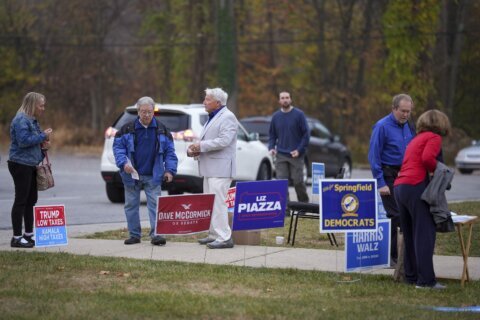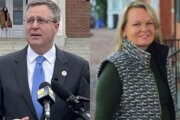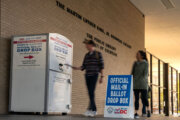MADISON, Wis. (AP) — A federal judge on Thursday ordered the U.S. government to temporarily leave roads open on a northern Wisconsin reservation, giving non-tribal homeowners hope that they can maintain access to their properties for a while longer.
U.S. District Judge William Conley’s preliminary injunction is the latest twist in an escalating dispute between the Lac du Flambeau Band of Lake Superior Chippewa, the town of Lac du Flambeau and scores of non-tribal property owners who rely on the roads to access their homes.
The tribe granted easements in the 1960s allowing public access to about 1.3 miles (2 kilometers) of reservation roads. The easements allowed non-tribal people to move onto the reservation and build homes there.
The easements expired about a decade ago and the tribe and the town have been unable to negotiate new ones. According to Conley’s injunction, the tribe has asked for up to $20 million for the right-of-way.
The tribal council in January 2023 warned the town and the homeowners that they were now trespassing on the reservation. The tribe that month barricaded the roads, allowing the homeowners to leave only for medical appointments. The tribe opened the roads that March by charging the town for monthly access permits.
Conley’s injunction said the arrangement has depleted the town’s entire road budget for 2024. The tribe has threatened to block the roads again if the town doesn’t make a payment in October.
The U.S. Department of Justice sued on the tribe’s behalf in May 2023 seeking damages from the town for trespassing. More than 70 homeowners have joined the lawsuit in hopes of establishing access rights.
Conley’s injunction orders the U.S. government to do nothing to block the roads while the lawsuit is pending. The judge stopped short of applying the injunction to the tribe, noting it’s unclear whether forcing the tribe to abide by the order would violate its sovereign immunity. But he ordered the Department of Justice to share the injunction with the tribe and tell tribal leaders that he expects them to leave the roads open.
Myra Longfield, a spokesperson for the U.S. attorney’s office in Madison, didn’t immediately respond to an email seeking comment. Tribal spokesperson Araia Breedlove and the town’s attorney, Derek Waterstreet, also did not immediately respond to emails.
Copyright © 2024 The Associated Press. All rights reserved. This material may not be published, broadcast, written or redistributed.







